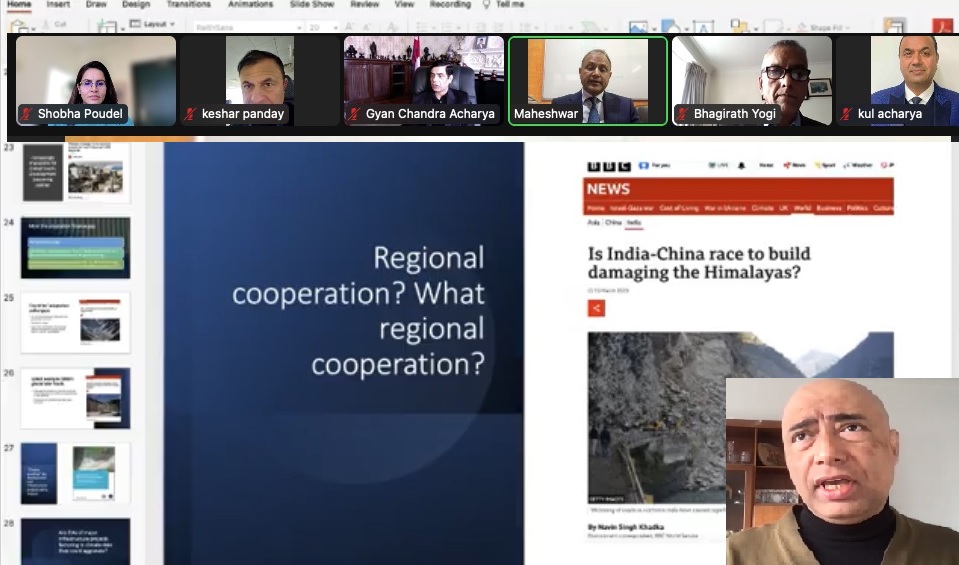South Asian countries face heightened Climate Change risks, experts warn

LONDON: Climate change experts and researchers have said that South Asian countries face heightened risks due to climate change.
Taking part in a webinar entitled ‘Climate Change and South Asia: Regional Challenges in a Global Crisis’ organised to mark the 5th anniversary of South Asia Time news portal on Saturday, they called upon the South Asian governments to work closely to combat the impacts of climate change.
Dr. Maheshwar Dhakal, Joint Secretary at the Ministry of Forests and Environment, highlighted Nepal’s longstanding commitment to protect environment and reduce carbon emissions. He stressed on the need for a more strategic approach to deal with the global challenge.
“The accelerated pace of production, consumption, market, and economic development in India and China directly impacts Nepal’s survival. Nepal must be proactive and vocal to highlight the risks it is facing,” he added.
Climate researcher, Dr. Shobha Poudel, said that there was need to implement the decisions of various Conference of Parties (COP) gatherings. “There is a need to reduce risks to people’s livelihoods and farming through carbon emission reduction and climate-smart investment,”said Dr. Poudel, who is currently working as Marie Curie research fellow at the Fondazione Eni Enrico Mattei in Italy. She called upon South Asian governments to invest more in research and development and encourage farmers towards the climate-friendly cultivation.
BBC World Service’s Global Environment Correspondent, Navin Singh Khadka, said that none of the G20 countries are reducing emissions at a pace consistent with their net-zero targets. “Greenhouse gas emissions across the G20 increased by 1.2 per cent in 2022,” said Khadka. Development is becoming costlier and low-income countries are not able to keep up with the impact of climate change. There were policy gaps in countries’ adaptation plans. India’s Chamoli disaster showed local disaster management bodies did not factor in climate risks, he added.
Ambassador of Nepal to the UK, Gyan Chandra Acharya, said that regional cooperation was key to deal with sectors like energy, disaster management and policy framework, among others.
“South Asia is the second most vulnerable region from the impacts of climate change. There is no national border for climate change. Hence, we should pressure at the international level for finance, technology and ambition,” he added. Saying that climate change is not only impacting Himalyan ecology, it is also having significant impact on food security,livelihood and public health, Ambassador Acharya said how to decarbonise industries and protecting forest should be a priority.
“COP28 in Dubai has made good progress by renewing its commitment to 1.5 degree Celsius and operationalise the loss ad damange fund, among other,” said Acharya. “Now, we must emphasise on implementing the decisions taken on the basis of multistakeholder approach.”
Kul Acharya, the former president of NRNA, said there was the need to study the relationship between climate change and migration.
Chief Editor of Asia Time, Bhagirath Yogi, welcomed participants and shed light on the significance of the webinar while Director and Editor of www.southasiatime.com Dr Jagan Karki delivered the vote of thanks.

















Facebook Comments